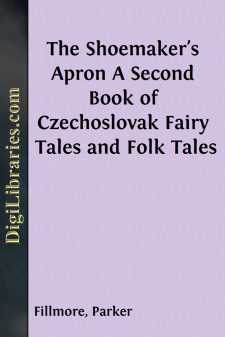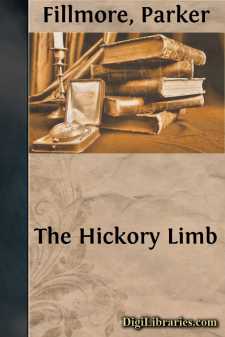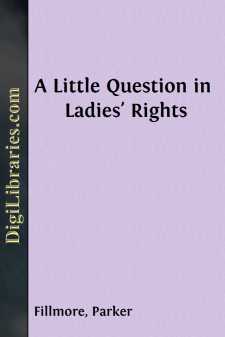Categories
- Antiques & Collectibles 13
- Architecture 36
- Art 48
- Bibles 22
- Biography & Autobiography 813
- Body, Mind & Spirit 142
- Business & Economics 28
- Children's Books 15
- Children's Fiction 12
- Computers 4
- Cooking 94
- Crafts & Hobbies 4
- Drama 346
- Education 46
- Family & Relationships 57
- Fiction 11828
- Games 19
- Gardening 17
- Health & Fitness 34
- History 1377
- House & Home 1
- Humor 147
- Juvenile Fiction 1873
- Juvenile Nonfiction 202
- Language Arts & Disciplines 88
- Law 16
- Literary Collections 686
- Literary Criticism 179
- Mathematics 13
- Medical 41
- Music 40
- Nature 179
- Non-Classifiable 1768
- Performing Arts 7
- Periodicals 1453
- Philosophy 64
- Photography 2
- Poetry 896
- Political Science 203
- Psychology 42
- Reference 154
- Religion 513
- Science 126
- Self-Help 84
- Social Science 81
- Sports & Recreation 34
- Study Aids 3
- Technology & Engineering 59
- Transportation 23
- Travel 463
- True Crime 29
The Shoemaker's Apron A Second Book of Czechoslovak Fairy Tales and Folk Tales
by: Parker Fillmore
Description:
Excerpt
The stories in this volume are all of Czech, Moravian, and Slovak origin, and are to be found in many versions in the books of folk tales collected by Erben, Nemcova, Kulda, Dobsinsky, Rimavsky, Benes-Trebizsky, Miksicek. I got them first by word of mouth and afterwards hunted them out in the old books. My work has been that of retelling rather than translating since in most cases I have put myself in the place of a storyteller who knows several forms of the same story, equally authentic, and from them all fashions a version of his own. It is of course always the same story although told in one form to a group of children and in another form to a group of soldiers. The audience that I hope particularly to interest is the English-speaking child.
Some few of the stories—such as Nemcova's very beautiful Twelve Months and Erben's spirited Zlatovlaska and to a less degree Nemcova's hero tale, Vitazko—are already in such definitive form that it would be profanation to "edit" them. They—especially the first two—have been told once and for all. But the same cannot be said of most of the other stories. Nemcova's renderings are too often diffuse and inconsequential, Kulda's dry, pedantic, and homiletic. Erben, the scholarly old archivist of Prague, seems to me the greatest literary artist of them all. His chief interest in folklore was philological, but he was a poet as well as a scholar and he carried his versions of the old stories from the realm of crude folklore to the realm of art.
A small number of the present tales have appeared in earlier English collections coming, nearly always, by way of German or French translations. In the one case they have been squeezed dry of their Slavic exuberance and in the other somewhat dandified. So I make no apology for offering them afresh.
Variants of most of the tales are, of course, to be found in other countries. Grimm's The White Snake, for instance, is a variant of Zlatovlaska. My rule of selection has been to take stories that do not have well-known variants in other languages. I have to confess that The White Snake is very well known, but here I break my own rule on account of the greater beauty of the Slavic version.
In Grimm there are also to be found variants of A Gullible World (The Shrewd Farmer), The Devil's Little Brother-in-Law (Bearskin), Clever Manka (The Peasant's Clever Daughter), The Devil's Gifts (The Magic Gifts), The Candles of Life (The Strange Godfather and Godfather Death), The Shoemaker's Apron (Brother Jolly). In all these tales the same incidents are presented but with a difference in spirit and in background that instantly marks one variant Teutonic and its fellow Slavic. Moreover, as stories, the German versions of these particular tales are neither as interesting nor as important as the Slavic versions.
Both German and Slavic versions go back, in most cases, to some early common source. Take Clever Manka, for instance, and its German variant, The Farmer's Shrewd Daughter. Clever Manka is very popular among the Czechs and Slovaks and is considered by them especially typical of their own folk wisdom and folk humor. And they are right: it is. But it would be rash to say just how early or how late this story began to be told among the peoples of the earth. The catch at the end appears in a story in the Talmud and at that time it has all the marks of a long and honorable career. The story of the devil marrying a scold, another great favorite with the Slavs, also has its Talmudic parallel in the story of Azrael, the Angel of Death, marrying a woman. The Azrael story contains many of the incidents which are used in different combinations in some half-dozen of the folk tales in the present collection. And yet when comparative folklore has said all that it has to say about variants and versions the fact remains that every people puts its own mark upon the stories that it retells....





